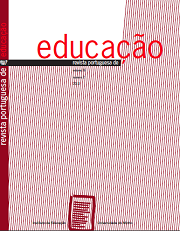Equality, equity and other complexities of educational justice
DOI:
https://doi.org/10.21814/rpe.3253Abstract
Most debates on educational systems structures lean on either egalitarian or meritocratic concepts of educational justice. In this paper the author proposes that all those societies have an idea of social justice that, even in different degrees, combine both criteria of equality (the right to equal access to resources) and equity (the right to receive a compensation according to one's
contribution). This is appropriate to economies in which people live both on resources received from past times (nature and heritage) and produced at present (work and thrift). Educators need to translate to the educational field those social values, so combining equality and equity. But they also have to face two extreme but not infrequent possibilities: on one side, those who, not having fairly treated by nature or by history, would be condemned to a disadvantaged position if they were treated merely in a formally equal way, and so they need and deserve a compensatory effort, that is, solidarity; on the other side, those who possess extraordinary abilities, who also have the right
to develop them to their maximum and so requires a policy that sustains excellence. These four criteria, in mutual tension but not incompatible, form together educational justice.
Keywords
Equality; Equity; Solidarity; Excellence
Downloads
How to Cite
Issue
Section
License
1. The authors preserve their authorship and grant the Portuguese Journal of Education the right to the first publication. The work is licensed under Creative Commons Attribution License that allows sharing the work with the acknowledgment of initial authorship and publication in this Journal.
2. The authors have the right to take additional contracts separately, for non-exclusive distribution of the published version of their work (e.g. to deposit in an institutional repository or as a book chapter), acknowledging the initial authorship and publication in this Journal.
3. The authors have the permission and are stimulated to post their work online (e.g. in an institutional repository or on their personal website). They can do this at any phase of the editorial process, as it may generate productive changes, as well as increase impact and article citation (see The Open Citation Project).
The work is licensed under Attribution-ShareAlike 4.0 International (CC BY-SA 4.0)




















